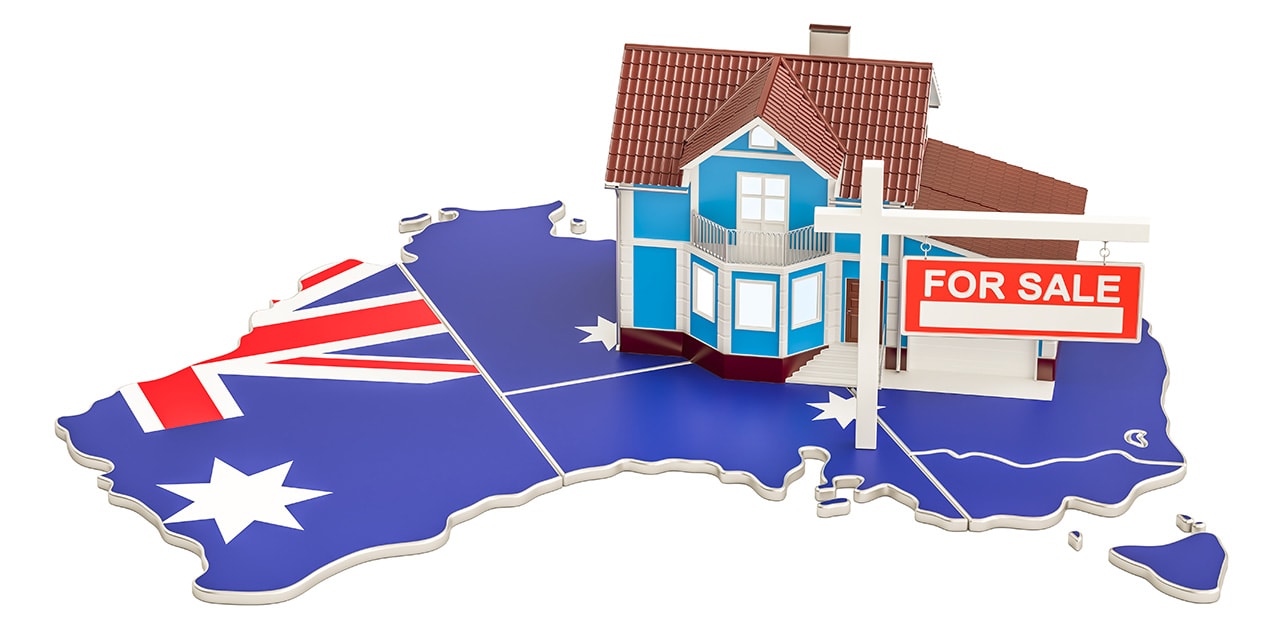

-
Many Hong Kong people buy Australian properties mainly because the local property market is mature and the property prices are generally lower than those in Hong Kong. However, if you are unfamiliar with the Australian market and are afraid of stepping into the trap of buying a property in Australia, you should first understand the local regulations for foreigners to buy properties. Read the following carefully to understand the precautions for Australian real estate investment!
-
1. Restrictions on buying property in Australia
If you are a non-Australian permanent resident or citizen, there are restrictions on the types of Australian properties you can buy. For example, foreigners can only buy brand new first-hand properties, not second-hand properties. However, there is no limit to the number of primary properties foreigners can buy in Australia. In addition, foreigners must complete housing construction within 4 years of purchasing idle land.
If you hold an Australian temporary residence visa for one year or more, including student visas and work visas, you can buy local second-hand properties for self-occupation. It is worth noting that each foreigner holding a temporary residence visa can only purchase one second-hand property. However, such buyers must sell the second-hand property within 3 months before their visa expires or departure.
-
2. A one-off payment for the expenses related to the purchase of the property is required
To buy a property in Australia, in addition to preparing the down payment, you also need to set aside a sum of money to pay for other expenses related to buying a property. Here are the main costs:
Whether you are a non-Australian permanent resident or citizen, or an Australian visa holder, before buying a property in Australia, you must apply for a property purchase on the website of the Foreign Investment Review Board (Foreign Investment Review Board) and pay a specified amount of fees. The application fee is generally calculated based on the property price, for example, the application fee for properties under $1 million is $6,350*.
Like local buyers, overseas buyers are also subject to stamp duty, which varies from 3.5% to 5.5% by state. For example, buying a $1 million property in Queensland will incur $38,025 in stamp duty*. In addition to the general stamp duty, overseas buyers also need to pay additional duty for foreign purchasers, which also varies by state, with NSW and Victoria both at 8% and other states at 7%.
In addition, if you plan to buy Australian property, you must set aside a legal fee. The Law Society handles legal matters related to the purchase of a property, such as explaining the contents of a sale and purchase agreement to overseas buyers, with fees ranging from A$1,000 to A$4,000.
-
3. Hire a professional mortgage consultant to handle mortgage applications in Australia
Australian banks generally approve mortgage applications based on conditions such as the overseas buyer’s age, income and proof of employment. Under normal circumstances, overseas buyers can apply for 60% to 80% of the mortgage-to-value ratio, and the interest rate is 6.5% to 8%. However, the mortgage application procedures of local banks are complicated, and the audit conditions for foreigners are stricter. If overseas buyers are not familiar with bank regulations or fail to submit certain specified documents, banks may reject mortgage applications.
If you are interested in buying a property in Australia, it is advisable to hire a professional mortgage consultant to process mortgage applications. Changmei has more than 22 years of rich experience in Australian real estate, helping many clients to successfully process mortgage applications, as well as professional services such as rental management, mortgage services, immigration and education, etc. A reliable one-stop Australian property investment consultant company.
-
4. There are a number of regular expenses involved when renting out a property in Australia
Many overseas buyers plan to rent out properties after buying Australian properties. Below are the usual expenses involved when renting out a property in Australia:
Most foreigners who buy Australian properties for investment are not often in Australia, so they will be handed over to local rental management companies to collect rent from tenants, as well as pay rates and management fees. Rental management companies generally charge 6% of the rent as rental property management fees.
In addition to the rental management fee, overseas property owners must pay the water and sewerage charges for the property on a quarterly basis. The associated costs are mainly for the maintenance of sewage pipes, generally starting from $600.
In addition, overseas property owners must pay council rates, which are mainly used for community management and waste disposal. As with water and sewage charges, owners are required to pay quarterly.
If overseas owners buy Australian properties with more clubhouse facilities, such as swimming pools and gyms, the higher the property management fees the owners need to pay.
-
5. Pay income tax when renting out Australian properties
Foreigners renting properties in Australia, in addition to involving a number of regular expenses, also need to pay income tax (tax on rental income). Therefore, the owner needs to deduct the income tax from the income to be the actual income. Generally speaking, the tax rate is 32.5% for rents under $90,000 a year, and 37% to 45% for rents over $90,000 a year. In addition, owners can claim tax deductions for expenses paid while the property is being leased, including rental management fees, as well as the cost of basic maintenance works.
-
If you are interested in buying a property in Australia for self-occupation or for rent collection, please contact us, and our experienced property investment experts will introduce you to the first-hand information closely related to the Australian property market.
*Taxes and interest rates are for reference only, please check with relevant departments or banks for details
